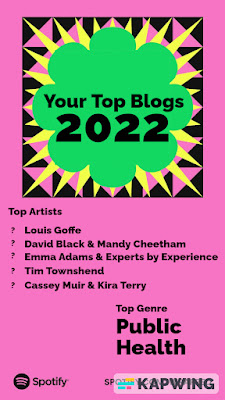But what exactly is a ‘treat’? Why do we feel the need to ‘treat’ someone? Are ‘treats’ always a positive experience or can they be used in a detrimental or harmful way?
While working in a forensic service I saw patients gain weight, and often gain this weight very rapidly. I also noted that some staff seemed frustrated and concerned about the weight gain some patients experienced. However, I also noticed that HFSS food was frequently used as part of patient care. This sparked my interest in wanting to understand this apparent conflict.
Forensic services provide care for people with a severe mental illness or learning disability, who have committed a crime but are too vulnerable to be in prison. For example, they are high risk either to themselves or the public, and therefore are unable to live in the community. People in these environments are often here for a long time and are reported to die 15-20 years prematurely, often from avoidable diseases. There are often restrictions imposed on the person and their environment. These restrictions will depend on the level of security required and the risk posed by the patient, and can be directed by the Ministry of Justice. An example of a restriction might be the person is not able to leave the ward.
Limited research seems to have been undertaken around the use of HFSS food ‘treats’ for adults, let alone adults who are in hospital. Yet, it is something many of us seem primed to do – bring (HFSS) food to someone when they’re ill.
The word ‘treat’ conjures up a particular thought of food – which is often high in calories, high fat and high in sugar. What you view as a ‘treat’ and how to ‘treat’ can often have been learnt in childhood and can differ from person to person. But, while it is entirely possible to have a non-food ‘treat’, it’s often harder to think of one and can be more difficult to provide while in hospital (particularly one with restrictions such as forensic wards).
You could argue that ‘treats’, by definition, can only be a ‘treat’ if you don’t consume them on a regular basis. As research shows, regular behaviours of any kind, can soon develop into habits.
Wanting to learn more about the use of ‘treats’ to show care and kindness, particularly in a hospital setting, I applied for research funding from my Trust (Cumbria, Northumberland, Tyne and Wear NHS Foundation Trust). Also, in 2020, I was successful in obtaining a clinical academic internship with Health Education England (HEE) and the National Institute for Health and Care Research (NIHR). Both awards enabled me to research the use of treats in forensic inpatient care settings.
Using this funding, I decided to focus on whether ‘treats’ were being used to prompt a particular behaviour from a person, while in inpatient care settings; whether these ‘treats’ impacted on a person’s weight and physical health; and why treats were chosen and if it was related to ideas of care and kindness. Certainly, from my observations this is what seemed to be happening - often perhaps unconsciously – but this research allowed us to evidence what may be happening.
What we found
Our research into treats in the health care sector has now been published. It found that treats were used for a number of reasons including:
It’s entirely possible to have ‘treats’ as part of a healthy balanced diet, and that the origin of using HFSS as treats may be from a place of nurture, but the advice is that food treats should be infrequent and limited in quantity. While it would appear ‘easy’ to say that those working in institutions, like in NHS care services, need to be mindful of how food is being used, our research findings suggest that it may take a much bigger system/cultural change to reduce the use of HFSS as treats in services. I think the idea of a ‘positive food culture’ is useful here. One where the focus is on preserving and nurturing good health and wellbeing through the use of healthy, positive, food behaviours, attitudes and values.
Authors:
Anita Attala, Lead Adult Weight Management Dietitian from Cumbria, Northumberland, Tyne & Wear NHS Foundation Trust, and postgraduate student from Teesside University.
Jo Smith, Consultant Dietitian (Clinical Academic) from Tees, Esk and Wear Valleys NHS Foundation Trust, and PhD student from Teesside University
Amelia Lake, Fuse Associate Director and Professor of Public Health Nutrition from Teesside University
Dr Emma Giles, co deputy-lead of the Fuse Behaviour Change Theme and Associate Professor Public Health from Teessside University
References:
Our research into treats in the health care sector has now been published. It found that treats were used for a number of reasons including:
- Being an affordable way to reward someone
- An incentive to encourage patients to participate in activities, and
- A way to express love/care for someone.
It’s entirely possible to have ‘treats’ as part of a healthy balanced diet, and that the origin of using HFSS as treats may be from a place of nurture, but the advice is that food treats should be infrequent and limited in quantity. While it would appear ‘easy’ to say that those working in institutions, like in NHS care services, need to be mindful of how food is being used, our research findings suggest that it may take a much bigger system/cultural change to reduce the use of HFSS as treats in services. I think the idea of a ‘positive food culture’ is useful here. One where the focus is on preserving and nurturing good health and wellbeing through the use of healthy, positive, food behaviours, attitudes and values.
Authors:
Anita Attala, Lead Adult Weight Management Dietitian from Cumbria, Northumberland, Tyne & Wear NHS Foundation Trust, and postgraduate student from Teesside University.
Jo Smith, Consultant Dietitian (Clinical Academic) from Tees, Esk and Wear Valleys NHS Foundation Trust, and PhD student from Teesside University
Amelia Lake, Fuse Associate Director and Professor of Public Health Nutrition from Teesside University
Dr Emma Giles, co deputy-lead of the Fuse Behaviour Change Theme and Associate Professor Public Health from Teessside University
References:
- Alonso-Alonso M, Woods SC, Pelchat M, Grigson PS, Stice E, Farooqi S, Khoo CS, Mattes RD, Beauchamp GK. Food reward system: current perspectives and future research needs. . Nutr Rev 2015;73(5):296-307. https://www.ncbi.nlm.nih.gov/pmc/articles/PMC4477694/
- Roberts L, Marx JM, Musher-Eizenman DR. Using food as a reward: An examination of parental reward practices. Appetite 2018;120:318-326. https://doi.org/10.1016/j.appet.2017.09.024
- Hsu A BA. Designing for Psychological Change: Individuals’ Reward and Cost Valuations in Weight Management. J Med Internet Res 2014;16(6). https://www.jmir.org/2014/6/e138
- Attala A, Smith J, Lake AA, Giles E. Investigating ‘treat culture’ in a secure care service: a study of inpatient NHS staff on their views and opinions on weight gain and treat giving for patients in a forensic secure care service. J Hum Nutr Diet 2023; 1-13. http://doi.org/10.1111/jhn.13129
- Human Relations Area File. Craving comfort: bonding with food across cultures. 2023; Available at: https://hraf.yale.edu/craving-comfort-bonding-with-food-across-cultures/
- Mingay E, Hart M, Yoong S, Hure A. Why We Eat the Way We Do: A Call to Consider Food Culture in Public Health Initiatives. International journal of environmental research and public health 2021; 18(22) https://www.ncbi.nlm.nih.gov/pmc/articles/PMC8623951/









